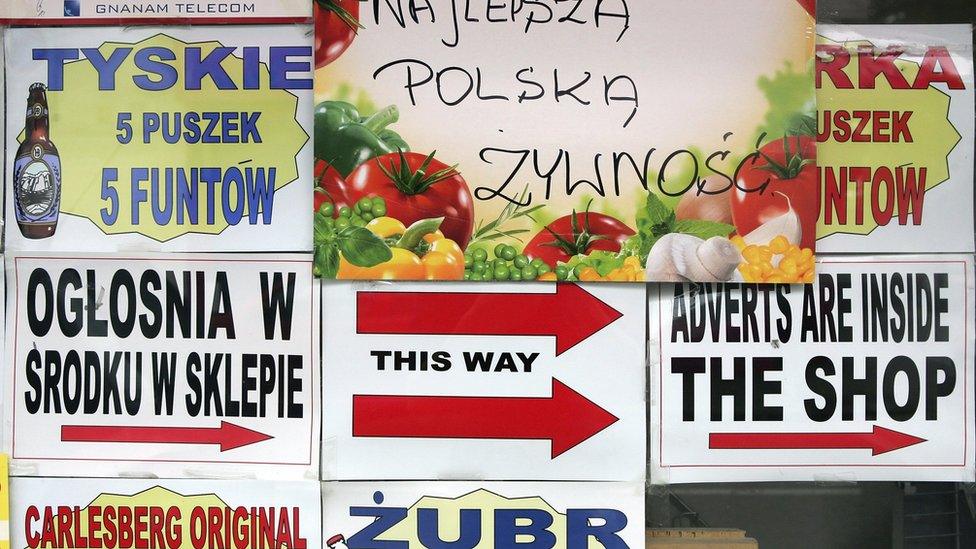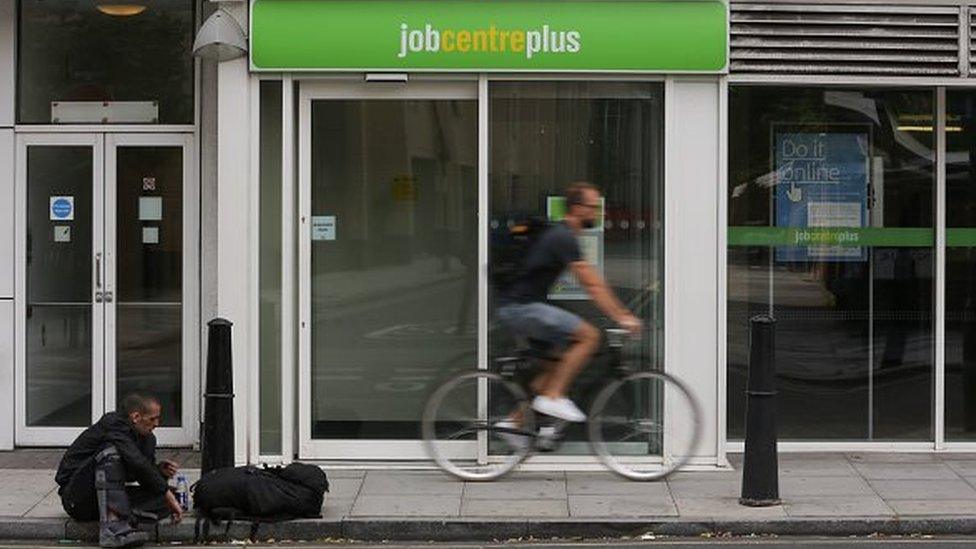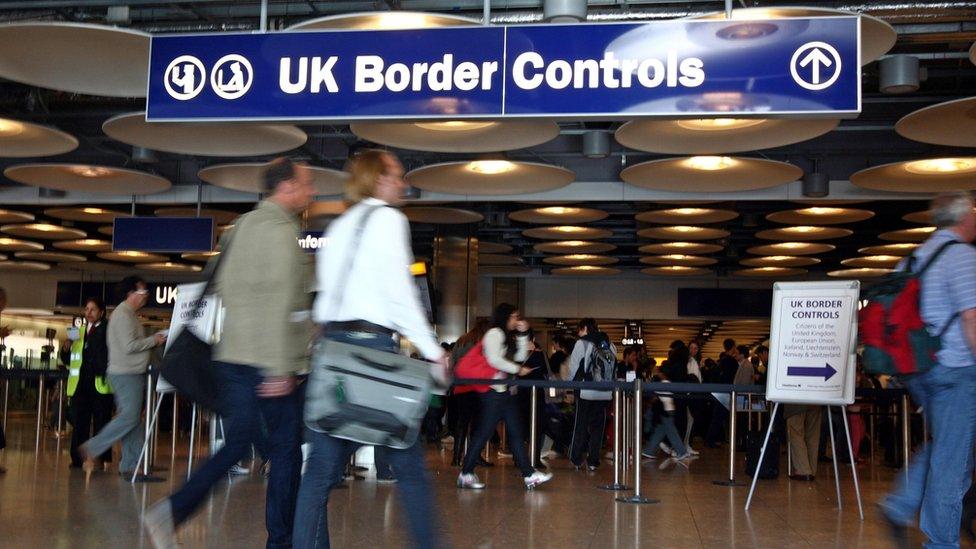EU migration: Eastern European workers in UK pass one million
- Published

The number of UK workers from eight eastern European countries that joined the EU in 2004 has passed one million for the first time.
From April to June, workers from the Czech Republic, Estonia, Hungary, Latvia, Lithuania, Poland, Slovakia and Slovenia increased by 44,000 compared to the same period in 2015.
Official figures showed there were now a total of 2.23m EU workers in Britain.
UK unemployment fell by 52,000 to 1.64m during the same three-month period.
The Office for National Statistics (ONS) figures, external are the first to be issued since June's EU referendum, when the UK voted to leave the European Union.
The labour market data showed the number of workers from the eight eastern European countries was nearly four times the level recorded 10 years ago - when the number stood at just over 250,000.
UK jobless total falls to 1.64 million
Brexit latest: How is the UK economy doing?
It also showed there were 266,000 Bulgarians and Romanians in employment in the UK - a rise of around 87,000 compared with the second quarter of 2015.
Citizens from the two countries have been able to work without restrictions across the EU since January 2014.
There were an estimated 944,000 employees from the remaining EU member states.
Overall, between April and June there were 2.23 million EU nationals working in the UK - an increase of 238,000 year-on-year.
The number of workers from outside the EU remained nearly unchanged, at about 1.21m.

The issue of immigration was hotly debated during the EU referendum
Lord Green, chairman of Migration Watch, said the figures represented "a milestone".
"The pressures that this massive migration has placed on local communities go a long way to explaining the outcome of the referendum.
"The new statistics underline why it is essential not just to regain control of our borders but also to reduce net migration significantly," he added.
Attractive destination?
Madeleine Sumption, director of the Migration Observatory at the University of Oxford, said statistics suggested the UK labour market remained "relatively strong" in the months leading up to the referendum.
"There have been steady increases in the numbers of foreign-born people who are in work, driven by a combination of net migration and a higher share of non-EU migrants who are already living in the UK finding work," she said.
She added: "It is too early to know how attractive a destination post-Brexit UK will be, or to identify any evidence of a 'rush' of people coming to the UK while free movement rules still apply."
Frank Field MP, joint chairman of the parliamentary cross-party group on migration, said the figures showed "how crucial it was that one aspect of Brexit's success must be the control of our borders".
Labour MP Mr Field - who supported the Leave campaign - called for the introduction of a points immigration system alongside measures to build up skill levels in the UK.
"It is possible now to acquire basic skills - such as brick-laying and carpentry - from bespoke 12-week training schemes," he said.
"All new public investment schemes should require using such bespoke training schemes so that, over time, the skill levels in the British economy are raised."
- Published17 August 2016

- Published17 July 2016

- Published6 July 2016
